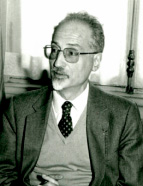

Finally, Aubin’s institutional and teaching career was marked by his participation, alongside Teodoro de Matos, in the creation of the Centre for Overseas History (CHAM) at the New University of Lisbon (UNL), and by his appointment in 1986, and without prejudice to his duties at the CNRS and EPHE, as director of research at the École des Hautes Études en Sciences Sociales (EHESS), where he created the Centre d’Études Portugaises in 1992. On the other hand, he never ceased to maintain his privileged relationship with the Portuguese Cultural Centre of the Calouste Gulbenkian Foundation in Paris, where he also established ties of friendship with Vitorino de Pina Martins, José Augusto França and Maria de Lourdes Belchior, three historical directors of the Centre. At the Foundation in Paris, in addition to his numerous lectures and conferences, the historian organised several international colloquiums dedicated to Portugal’s maritime expansion.
Regarding this Lusophile facet of Aubin’s work, it should be noted that, after having “entered the Portuguese world through Ormuz” ( Aubin, Le Latin et L’Astrolabe.I , 1996: 9) and having explored countless diplomatic archives written in Eastern languages that he could decipher at the Torre do Tombo, being at the time the only researcher able to do so, Aubin established himself in the 1960s as one of the leading scholars of the “mare luso-inducum” (Ibid.). His purpose was, as he explained in 1996, “to clarify knowledge of the countries of the Indian Ocean in the dual light of Islamic sources and the dormant mass of Portuguese archives” (Ibid.). For Aubin, it was also a question of studying Portuguese society and “Portugal’s place in Europe around the 1500s” (Ibid.) because, also in his words, “conventional historiography had led to the neglect of the study of [Portuguese] political society at the time of the Discoveries” (Ibid.).
This work is financed by national funds through FCT - Foundation for Science and Technology, I.P, in the scope of the projects UIDB/04311/2020 and UIDP/04311/2020.
